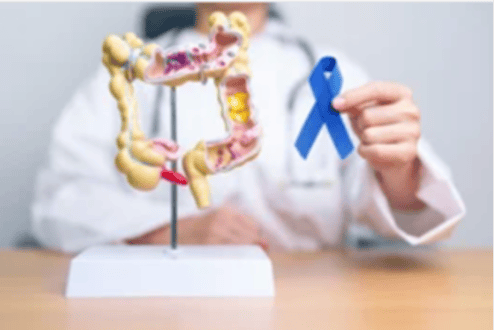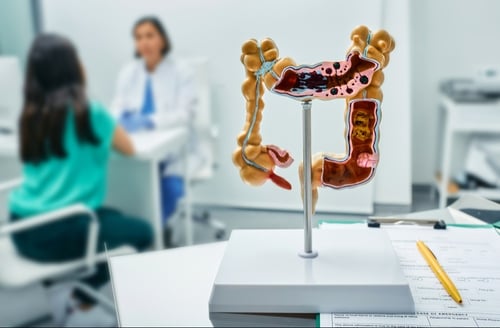MSH2: Cancer Treatment
Cancer Treatment for People with Inherited Mutations
Testing positive for an inherited mutation may affect your treatment options or eligibility for clinical trials studying which treatments work best. To learn more about standard of care treatment options for specific types of cancer, visit our section on Cancer Treatment by Cancer Type. People with an mutation who have been diagnosed with cancer may benefit from testing and may qualify for clinical trials looking for more effective treatments for cancer.
The following are examples of situations where an mutation may play a part in treatment decision-making.
treatment
Most cancers in people with an inherited mutation will have a tumor known as “" or "MSI-H" (). This indicates that the tumor has a feature known as "," which is also known by the abbreviations or . Testing tumors for or can be important, because these tumors are more likely to respond to agents known as immune checkpoint inhibitors.
MSI-H colorectal cancer
- In people with 2 colorectal cancer, MSI-H cancers have a good prognosis and may not benefit from 5-fluorouracil (chemotherapy used in colorectal cancer) therapy.
- People with 2 or 3 rectal cancer that is MSI-H, may benefit from treatment (before surgery) with Jemperli (dostarlimab).
Advanced MSI-H colorectal cancer
- Jemperli (dostarlimab) may be used to treat MSI-H or advanced colorectal cancer in people whose cancer got worse after chemotherapy.
- Keytruda (pembrolizumab) is an used to treat or advanced colorectal cancer that has progressed following treatment with a fluoropyrimidine, oxaliplatin, and irinotecan.
- Opdivo (nivolumab) is an used alone or in combination with Yervoy (ipilimumab) for cancer that has progressed following treatment with a fluoropyrimidine, oxaliplatin, and irinotecan.
endometrial cancer
- Imfinzi (durvalumab) is an that is approved in combination with chemotherapy to treat recurrent and advanced endometrial cancer that is mismatch repair-deficient.
- Jemperli (dostarlimab) is an that is approved to treat recurrent and advanced endometrial cancer that is mismatch repair-deficient.
- Keytruda (pembrolizumab) is an that is approved to treat MSI-H or advanced or recurrent endometrial cancer that came back or got worse after previous treatment and for which there are no other treatment options.
Immune checkpoint inhibitors for treating any type of advanced MSI-H or cancers
- Keytruda (pembrolizumab) is approved for the treatment of any that test MSI-H, have progressed after treatment and for which there are no other treatment options.
- Jemperli (dostarlimab) is approved to treat cancers with the dMMR that have progressed after prior treatment, and for which there are no other available treatment options.
Participate in Treatment Research
Below are some of our featured research studies looking at new ways to screen for, prevent or intercept cancer in people with mutations. To search for additional studies, visit our Search and Enroll Tool.
Post-surgery Immunotherapy (Toripalimab) for MMR-D / MSI-H Stage IIB-III Colon Cancer
Clinicaltrials.gov identifier: NCT07140679
Study of the Drug Olvi-Vec in Women with Ovarian Cancer
Clinicaltrials.gov identifier: NCT05281471
The Phoenix Trial: Cemiplimab for Patients with Localized dMMR Colon Cancer
Clinicaltrials.gov identifier: NCT05961709
Clinicaltrials.gov identifier: NCT03803553
Treatment of HER2-positive Colorectal Cancer as First Line Treatment in the Metastatic Setting
Clinicaltrials.gov identifier: NCT05253651
More Resources
Meet FORCE's Community
March 05, 2021
December 28, 2020
Visit our Partners
Mayberry Memorial
Paying for high-risk people to receive genetic counseling and testing for Lynch syndrome.











